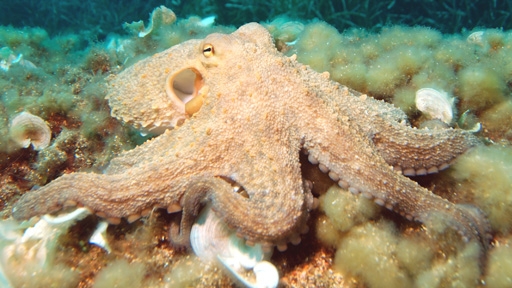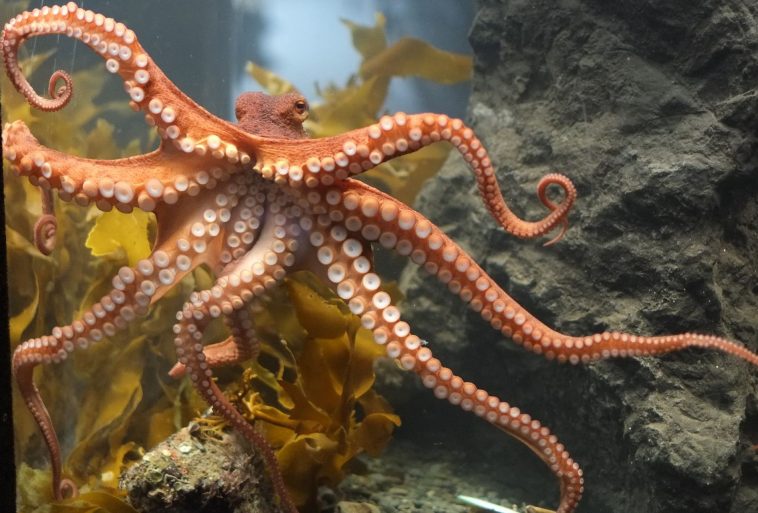
After extensive research, scientists have concluded that octopus DNA is surprisingly out of this world.
While the researchers aren’t suggesting that cephalopods are actually from another planet, they do say that what they’ve found has never been seen in any other animal species on earth.
The study found that while humans have an estimated 20,500 protein-coding genes, octopuses have an astonishing 33,000! And, the level of complexity was previously unheard of in animals.

The research team, led by Dr. Clifton W. Ragsdale and Dr. Daniel S. Rokhsar, found hundreds of genes present in the octopus genome not observed in other animals, including humans. Many of the unique genes are highly expressed in their specialized structures, including the skin, suckers, and nervous system. Some of these genes, for example, help the octopuses taste with their suckers and change the way light reflects off their skin.
The researchers discovered that almost half of the octopus genome is made up of transposable elements or “jumping genes,” small segments of DNA that can “jump” from one location in the genome to another. Evidently, this “expanded” genome is a result of these elements moving around and reorganizing the genome.
Carolina Albertin, co-author and graduate student at the University of Chicago said, “With a few notable exceptions, the octopus basically has a typical invertebrate genome that’s just been completely rearranged, like it’s been put into a blender and mixed.”
Scientists were keen to sequence this genome to understand how such sophisticated cognitive abilities evolved in an invertebrate. These animals have long been known for their intelligence, which has often been compared to that of a dog.
“The octopus genome makes studies of cephalopod traits much more tractable, and now represents an important point on the tree of life for comparative evolutionary studies,” adds Dr. Ragsdale.
Will you ever see an octopus in the same way?
Watch a short overview of the study here:




